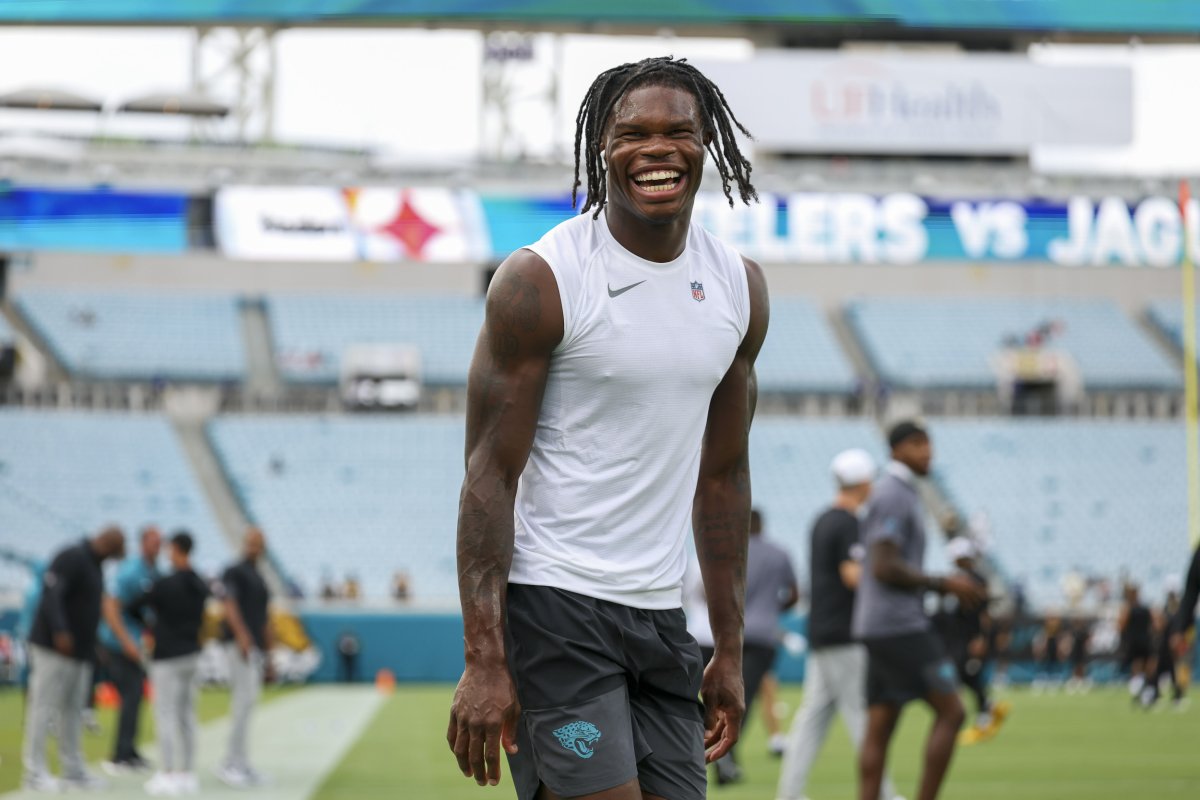-
Bill Belichick Speaks On Ban Of Patriots Scouts From UNC Football Facilities - 21 mins ago
-
As Syria Tries to Move Away From Dictatorship, Signs of Authoritarianism Linger - 38 mins ago
-
Who Is Carlo Acutis? ‘God’s Influencer’ Becomes First Millennial Saint - 56 mins ago
-
Trump Tramples Congress’s Power, With Little Challenge From G.O.P. - about 1 hour ago
-
Detroit Lions Prediction Spells Bad News for Green Bay Packers - 2 hours ago
-
Jacksonville Jaguars Reveal Massive Plans for Travis Hunter - 2 hours ago
-
What We Know About the Hyundai-LG Plant Immigration Raid in Georgia - 2 hours ago
-
Prince Harry Urged to Find Secret Channel for King Charles Meeting - 3 hours ago
-
String Theory - 3 hours ago
-
I Was in a Coma—This Is Everything I Could See, Hear and Feel - 3 hours ago
Older Workers Put in More Hours, But Younger Workers Outperform Them—Report
A new report revealed that while older workers are putting in more hours, younger workers are outperforming their elders.
Customer relationship management software company Pipedrive found that 82 percent of workers aged 51 to 65 regularly work overtime while 59 percent of 18- to 35-year-olds stick to business hours. But those working overtime were less likely to reach their sales goals.
Why It Matters
Gen Z, which includes ages 13 to 28, have gained a reputation for being the worst generation to work with. A prior poll conducted by Redfield & Wilton Strategies for Newsweek showed 40 percent of respondents identified Gen Z as the most difficult generation to work with, including Gen Z themselves.
The younger age group has been known to prioritize work-life balance, but the new data reveals this might not be a weakness in the workplace.

YURIY DYACHYSHYN/AFP via Getty Images
What To Know
In Pipedrive’s survey of more than 1,000 sales workers from 82 countries, younger workers routinely outperformed their older counterparts, despite working fewer hours.
“The difference in working times could be viewed as a shift in work ethic by some and as a gap in knowledge of how to better use software in the workplace by others,” Alex Beene, a financial literacy instructor for the University of Tennessee at Martin, told Newsweek. “Those aged 18-35 in the workplace are more likely to be quicker adopters to AI and other modern tech features that can save time and boost efficiency.”
Career and hiring experts say that while older workers have largely been conditioned in a culture that equates long hours with dedication and loyalty, it might not actually lead to higher productivity.
“More hours doesn’t equal more output, and those studies often show the inverse is true,” HR consultant Bryan Driscoll told Newsweek. “Younger workers value efficiency, tech-driven solutions and boundaries. They know overwork kills performance, so they protect their time and energy. And it shows in the results.”
The Pipedrive survey reflects Gen Z’s continuing work-life balance priorities.
Another survey from Randstad, an international recruitment company, discovered that 76 percent of Gen Z prioritized work-life balance over pay.
What People Are Saying
Kevin Thompson, the CEO of 9i Capital Group and the host of the 9innings podcast, told Newsweek: “Younger people tend to outperform their older cohorts because they are more adaptable to the changing environment and technology. Younger cohorts are likely to get things done more quickly and efficiently while using technology to increase output such as Ai, phone efficiency, and their ability to use technology out of office.”
Alex Beene told Newsweek: “While younger employees are starting relationships and families, they’re more eager to get off the clock and go to those other responsibilities. Meanwhile, those over 50 are in later stages of life and looking to increase productivity and their income prior to retirement.”
Drew Powers, the founder of Illinois-based Powers Financial Group, told Newsweek: “Younger generations have a leg up on their 50+year-old counterparts when it comes to adopting new tech and overall physical stamina. But too often we discount the experience and wisdom of older generations. Perhaps for all of human history, older generations have looked at the younger generations as lazy, ‘they don’t work overtime,’ and the younger generations look at older generations and cannot believe how behind the times they are. Some things never change.”
What Happens Next
Moving forward, Driscoll said employers will likely have to rethink productivity metrics beyond the number of hours employees put in.
“The 40-plus-hour grind is obsolete,” Driscoll said. “Butt in seat hours tracking is obsolete. Watching your employees work is obsolete…and inefficient. The workforce of tomorrow is proving that performance isn’t about hours.”
Source link












